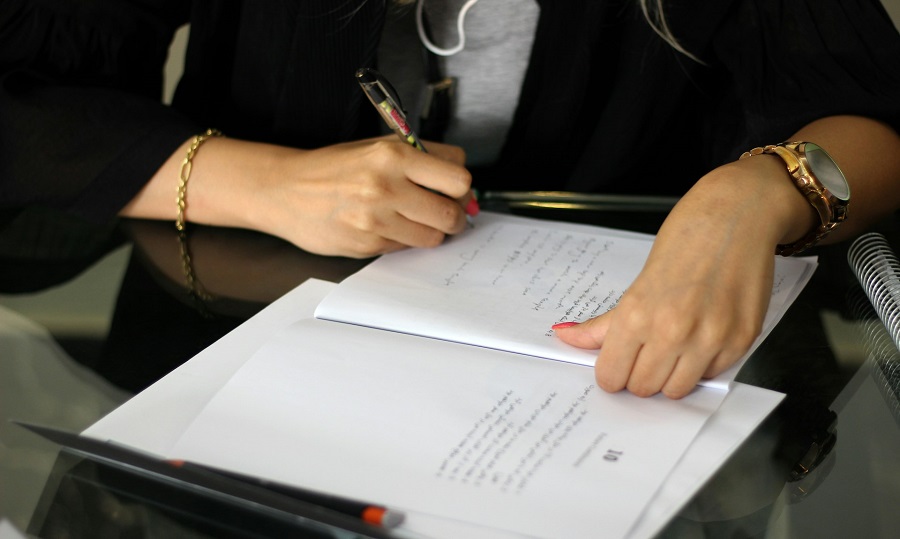Evidence needed to contest a will: Your complete guide

Have you found yourself questioning if your loved one’s will truly reflects their wishes? Maybe you’ve spotted a signature that seems off, noticed unexpected beneficiaries, or read provisions that contradict everything you knew about them. However, you should know that UK courts won’t overturn a will on your suspicions alone; you’ll need concrete evidence. This article outlines exactly what proof you’ll need for different types of will challenges. If you’re caught in this difficult situation, like many others facing inheritance disputes, speaking with a solicitor who specialises in contesting wills could save you significant heartache and protect your right to challenge an invalid will.

Key Takeaway: What’s the biggest mistake when contesting a will?
Read on to discover what evidence you need for your specific case before time runs out.
What courts look for in will challenges
When someone has taken the time to create a legal will, courts don’t overturn it lightly. The burden falls entirely on you, the challenger, to prove something went wrong. Feeling unfairly treated or believing a distribution is “not what you would have wanted” isn’t legally sufficient. The courts require specific, legally recognised reasons to contest a will and compelling evidence that meets strict legal thresholds.
Evidence for lack of valid execution
When you challenge a will based on improper execution, you’re arguing that the legal formalities required by the Wills Act 1837 weren’t followed. A valid will must be written, signed by the testator, and this signature must be made or acknowledged before two witnesses who then sign themselves.
To successfully prove your case, you’ll need three key types of evidence:
- Document examination evidence: The original will document is your primary evidence. Look for irregular signature placement, missing witness signatures, or alterations after signing.
- Witness testimony requirements: You need statements from witnesses contradicting proper procedure. Perhaps they didn’t see the testator sign, witnessed at different times, or the testator never acknowledged their signature.
- Expert analysis of signatures: A signature verification expert can identify inconsistencies in writing style or signs of forgery. Their professional opinion carries significant weight in court.
Evidence for lack of testamentary capacity
When you contest a will on grounds of testamentary capacity, you’re claiming the testator didn’t have the mental ability to make a valid will at the time of signing.
To prove your case, you’ll need compelling evidence from several sources:
- Medical records and expert testimony: Obtain records showing diagnoses of cognitive conditions like dementia around when the will was made. Clinical evidence is particularly powerful.
- Witness accounts of the testator’s mental state: Family members, caregivers, or neighbours can paint a picture of declining mental function that courts can clearly understand – confusion, memory problems, or irrational behaviour, like getting lost in familiar places or forgetting close relatives.
- The Banks v Goodfellow test evidence: Your evidence must show the testator failed to: understand they were making a will, know their estate’s value, comprehend potential beneficiaries’ claims, or was influenced by delusions affecting beneficiary decisions.
Evidence for undue influence
When contesting a will based on undue influence, you’re arguing someone pressured or manipulated the testator to change their will against their true wishes.
You’ll need to gather several specific types of evidence showing the testator’s will was not truly their own:
- Proving coercion or manipulation: Undue pressure can include persistent badgering, emotional manipulation, or threats to withdraw care, anything showing the testator wasn’t acting freely. Look for threatening messages, witness accounts of pressure, or recorded intimidating conversations.
- Circumstantial evidence: Evidence that the influencer arranged the will-making process, such as choosing the solicitor or being present during consultations, strengthens your case of improper influence.
- Relationship evidence between testator and influencer: Proof of a controlling relationship, especially if the testator feared the person, can demonstrate coercive relationships that produced an unnatural will.
Evidence for fraud or forgery
When you contest a will based on fraud or forgery, you’re alleging either that the will itself is fake (forgery) or that the testator was deliberately misled about its contents (fraud).
These serious allegations require the strongest possible evidence:
- Forensic document examination: A forensic examiner can identify alterations, ink differences, paper inconsistencies, or signs the document was created after its apparent date.
- Handwriting analysis requirements: Analysis must examine writing pressure, letter formation, pen lifts, and natural variations.
- Witness testimony about suspicious circumstances: Key testimony includes red flags – the testator never mentioned making a new will, didn’t review the document, or someone else controlled the process.
Evidence for lack of knowledge and approval
Here, you’re arguing the testator didn’t understand or approve the will’s contents, despite perhaps having signed it.
To prove this claim, you’ll need evidence demonstrating:
- Comprehension issues: Gather evidence of language barriers, literacy limitations, or visual impairments that prevented understanding.
- Suspicious circumstances: Document unusual elements surrounding the will’s creation – unexplained departures from previous wills, suspicious timing, or the testator’s inability to explain the will’s contents after signing.
- Lack of awareness: Evidence of statements inconsistent with knowing the will’s contents supports allegations of uninformed execution.
Evidence for claims under the Inheritance Act 1975
When you make a claim under the Inheritance Act 1975, you’re not contesting the will’s validity but arguing it fails to make reasonable financial provision for you.
To succeed, you’ll need to demonstrate both your relationship to the deceased and your financial needs:
- Proof of relationship and dependency: Document your qualifying relationship, marriage certificate, birth certificate, or proof of dependency for at least two years.
- Financial needs assessment: Provide evidence of your current financial position and reasonable needs – income, expenses, debts, assets, housing situation, and health issues affecting work ability. Documentation of financial hardship or specific needs the deceased previously helped with demonstrates your reasonable provision
- Conduct and relationship evidence: Include evidence about your relationship with the deceased – correspondence, photographs, and witness statements. Evidence of promises regarding inheritance or proof you contributed to their care impacts the court’s view of your inheritance rights and moral claim.
Do I need a solicitor to contest a will?
The evidence collection process presents numerous challenges that can derail even the strongest cases, and probate solicitors bring invaluable expertise to navigate these difficulties. They can:
- Apply for deadline extensions when justified
- Secure and properly preserve fragile or contested documents.
- Coordinate expert medical testimony regarding capacity issues.
- Obtain difficult-to-access records through proper legal channels.
- Advise when a case lacks sufficient evidence to justify proceeding.
- Interview witnesses effectively and obtain legally formatted statements.
- Arrange professional forensic analysis of disputed signatures or documents.
- Identify precisely what evidence you need for your specific grounds of contest.
- Evaluate the strength of your evidence objectively before you invest significantly.
While the cost of legal representation may seem high initially, it often proves cost-effective by avoiding expensive mistakes, preventing unnecessary court proceedings when evidence is insufficient, and maximising your chances of success when a valid case exists.
FAQs
- How much does it cost to contest a will? Typically, £5,000-£50,000 depending on complexity. Many probate disputes settle before trial, reducing costs.
- Can I contest a will if I’m not mentioned in it? If successful, the estate follows the previous valid will or intestacy rules. Certain relatives and dependents can also make Inheritance Act claims without being named.
- What happens to the estate while a will contest is ongoing? Distribution is frozen during will challenges. The executor cannot distribute disputed assets. Courts may appoint an independent administrator for lengthy proceedings.
Contesting a will requires specific evidence depending on your grounds. While challenging, with the right proof and legal support, unjust wills can be overturned. Acting promptly and gathering comprehensive evidence are key to protecting your rightful inheritance.
Ready to gather the evidence you need?
Qredible’s network of solicitors can assess your case, help collect crucial evidence, and guide you through the will contesting process.
KEY TAKEAWAYS
- Successful will contests require specific evidence tailored to your legal grounds, as courts begin with a presumption that properly executed wills are valid.
- Common evidence types include medical records, witness statements, forensic document analysis, signature verification reports, financial dependency documentation, and correspondence showing the testator’s true intentions.
- Seeking professional legal help is crucial, as solicitors specialising in contentious probate can identify necessary evidence, navigate strict deadlines, and properly preserve and present evidence in the format courts require.
Articles Sources
- willans.co.uk - https://www.willans.co.uk/knowledge/contesting-will/
- teeslaw.com - https://www.teeslaw.com/insights/grounds-for-contesting-a-will/
- osborneslaw.com - https://osborneslaw.com/blog/evidence-needed-when-contesting-a-will/
Do you need a solicitor?
Find a solicitor on Qredible in just a few easy steps

















